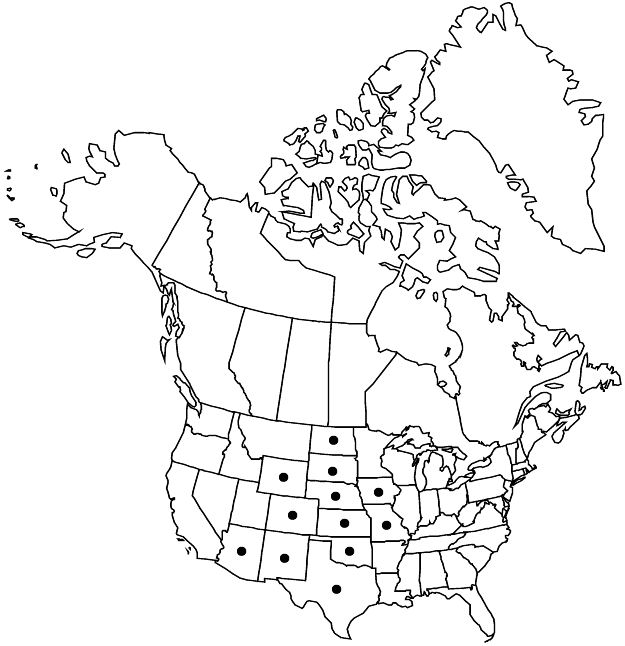Difference between revisions of "Euphorbia stictospora"
in W. H. Emory, Rep. U.S. Mex. Bound. 2(1): 187. 1859.
FNA>Volume Importer |
imported>Volume Importer |
||
| (3 intermediate revisions by 2 users not shown) | |||
| Line 1: | Line 1: | ||
{{Treatment/ID | {{Treatment/ID | ||
|accepted_name=Euphorbia stictospora | |accepted_name=Euphorbia stictospora | ||
| − | |accepted_authority=Engelmann | + | |accepted_authority=Engelmann |
|publications={{Treatment/Publication | |publications={{Treatment/Publication | ||
| − | |title=Rep. U.S. Mex. Bound. | + | |title=in W. H. Emory, Rep. U.S. Mex. Bound. |
|place=2(1): 187. 1859 | |place=2(1): 187. 1859 | ||
|year=1859 | |year=1859 | ||
| Line 12: | Line 12: | ||
|name=Chamaesyce stictospora | |name=Chamaesyce stictospora | ||
|authority=(Engelmann) Small | |authority=(Engelmann) Small | ||
| + | |rank=species | ||
}} | }} | ||
|hierarchy=Euphorbiaceae;Euphorbia;Euphorbia sect. Anisophyllum;Euphorbia stictospora | |hierarchy=Euphorbiaceae;Euphorbia;Euphorbia sect. Anisophyllum;Euphorbia stictospora | ||
| Line 36: | Line 37: | ||
-->{{#Taxon: | -->{{#Taxon: | ||
name=Euphorbia stictospora | name=Euphorbia stictospora | ||
| − | + | |authority=Engelmann | |
| − | |authority=Engelmann | ||
|rank=species | |rank=species | ||
|parent rank=section | |parent rank=section | ||
| Line 48: | Line 48: | ||
|distribution=Ariz.;Colo.;Iowa;Kans.;Mo.;Nebr.;N.Mex.;N.Dak.;Okla.;S.Dak.;Tex.;Wyo.;Mexico (Chihuahua;Durango;San Luis Potosí). | |distribution=Ariz.;Colo.;Iowa;Kans.;Mo.;Nebr.;N.Mex.;N.Dak.;Okla.;S.Dak.;Tex.;Wyo.;Mexico (Chihuahua;Durango;San Luis Potosí). | ||
|reference=None | |reference=None | ||
| − | |publication title=Rep. U.S. Mex. Bound. | + | |publication title=in W. H. Emory, Rep. U.S. Mex. Bound. |
|publication year=1859 | |publication year=1859 | ||
|special status= | |special status= | ||
| − | |source xml=https:// | + | |source xml=https://bitbucket.org/aafc-mbb/fna-data-curation/src/2e0870ddd59836b60bcf96646a41e87ea5a5943a/coarse_grained_fna_xml/V12/V12_29.xml |
|genus=Euphorbia | |genus=Euphorbia | ||
|section=Euphorbia sect. Anisophyllum | |section=Euphorbia sect. Anisophyllum | ||
Latest revision as of 19:14, 5 November 2020
Herbs, annual, with taproot. Stems prostrate, often mat-forming, occasionally with ascending tips, 5–45 cm, densely and evenly pilose to lanate. Leaves opposite; stipules distinct or connate basally on one side of stem, entire or irregularly toothed or fringed, 0.5–1.2 mm, pilose to lanate; petiole 0.3–1.5 mm, pilose to lanate; blade usually oblong to oblong-obovate, occasionally nearly circular, 3–10(–15) × 2–5(–10) mm, base asymmetric, one side usually angled or rounded and other truncate-auriculate, margins minutely or conspicuously serrulate at least toward apex, apex usually broadly rounded to broadly acute, occasionally emarginate, abaxial surface often ± lighter green and without reddish spot, both surfaces sparsely to moderately pilose to lanate; 3-veined from base or venation obscure. Cyathia solitary at leaf nodes or in small, cymose clusters on congested, axillary branches; peduncle 0.7–2.5 mm. Involucre obconic, 0.7–1 × 0.4–0.6 mm, moderately to densely pilose to lanate; glands 4, reddish, ± unequal, oblong, 0.1 × 0.1–0.3 mm; appendages white to strongly pinkish or reddish tinged, often unequal, sometimes 1 to all absent, 0–0.3 × 0–0.4 mm, 3-lobed or rudimentarily 1-lobed, distal margin crenate. Staminate flowers 3–9. Pistillate flowers: ovary pilose to villous, hairs occasionally slightly appressed; styles 0.2–0.5 mm, unbranched or inconspicuously notched at tip. Capsules ovoid, 1.6–2.3 × 1.4–1.5 mm, moderately to densely villous with hairs usually slightly appressed, pubescence often concentrated on proximal 1/2 or along lobes; columella 1.5–2 mm. Seeds light to dark brown, usually mottled, sometimes with thin, white coating, often wearing away irregularly, narrowly oblong-ovoid to ellipsoid, 3–4-angled in cross section, 1–1.5 × 0.5–0.6 mm, with short, irregularly interrupted furrows, appearing partially and irregularly few-ridged.
Phenology: Flowering and fruiting midsummer–early fall.
Habitat: Open disturbed areas, rocky slopes.
Elevation: 100–2100 m.
Distribution

Ariz., Colo., Iowa, Kans., Mo., Nebr., N.Mex., N.Dak., Okla., S.Dak., Tex., Wyo., Mexico (Chihuahua, Durango, San Luis Potosí).
Discussion
Euphorbia stictospora has been recorded from New York, but this disjunct occurrence likely represents a waif or misidentification.
Selected References
None.